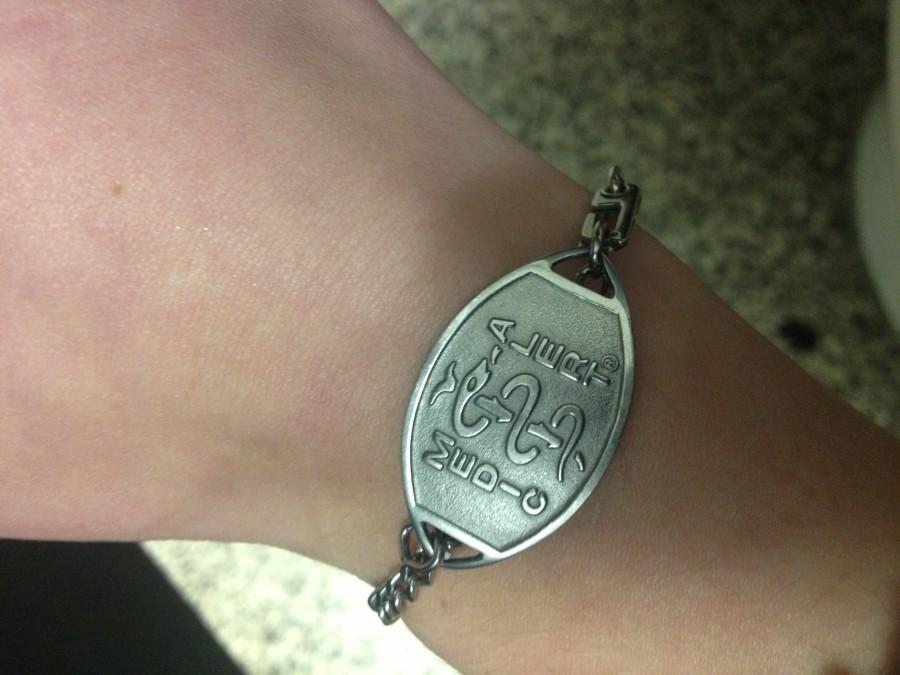Food Allergies in and out of School
Sophia Klein, as a fifth grader, was at her neighbor’s house on New Year’s Eve. She took a bite of the sweet piece of baklava that she held in her hand. Just ten minutes later Klein’s throat started itching, and her eyes began to swell. She walked home as her throat itched more, her eyes swelled close and giant welts began to form everywhere on her skin. Klein had just experienced her first allergic reaction. “I almost died,” Klein said.
Food allergies are affecting about 6 million or 8 percent of all children, according to acaai.org. Many precautions come along with having a food allergy.
There are different ways people prepare for potential allergic reactions. Natalie Lakin, a sophomore at Community High School, is allergic to peanuts, tree nuts and more, and takes many steps in order to make sure she is as safe as she can be in case of an emergency. She carries a small bag around with her that contains her epipen, benadryl, inhaler and her 504 plan in it. She also wears a metal bracelet. “If I’m just passed out people will know what’s wrong with me. It’s got a snake on it and a number. But you’re really just suppose to call 911,” Lakin said.
In case of an emergency the victim should use an epipen. Epinephrine is the number one recommended medication. “We train our patients to always carry their emergency medicine with them, to be able to use their emergency medication swiftly and promptly, and to avoid taking risks in terms of ingesting their allergen,” said Matthew Greenhawt, M.D., M. B. A. Allergist. “It never ceases to amaze me how quickly epinephrine works to avert a reaction.”
When Lakin was younger she made her allergies more clear to others. She used to ask people to put away food that she was allergic to, and she would even give them a plastic bag to put it in. Now, she is, as she says “not as good at it anymore.” She realized people do not understand her allergy, especially adults. “It is a disability which people don’t get,” Lakin said. “It’s kind of hard to advocate for my self when people just don’t get it.”
Allergies are disabilities. Similarly to other disabilities, an allergy is something that Lakin is teased about. “I don’t get what’s funny about it. I try to get across that it’s life threatening and it’s not a joke,” Lakin said. Regardless of her effort to communicate how dangerous her allergy is, people still complain about not being able to eat peanuts and tree nuts while around her. “It becomes more of just a selfish thing because they are hungry that moment [and they can’t eat that food],” Lakin said.
Having people complain about Klein’s allergy does not arouse her too much. “I can understand [why people complain] because they don’t have a problem so why should they have to do anything?”
To Klein and Lakin people tend to respect their allergies in school more than in public.“In school, people respect my allergy more because we are in close proximity so its easier for me to have a reaction,” Klein said.
But Lakin has a more concrete version of respect. “In schools I have a 504 plan which is a law that they have to follow for precautionary measures,” Lakin said. “Because everyone has a right to be in a classroom.” A 504 plan is an act that was passed in 1973 that disallows discrimination of any disability in public schools, including allergies. “I give it to all my teachers, and they are suppose to follow it,” Lakin said. This allows her to be safe in school under the law.










